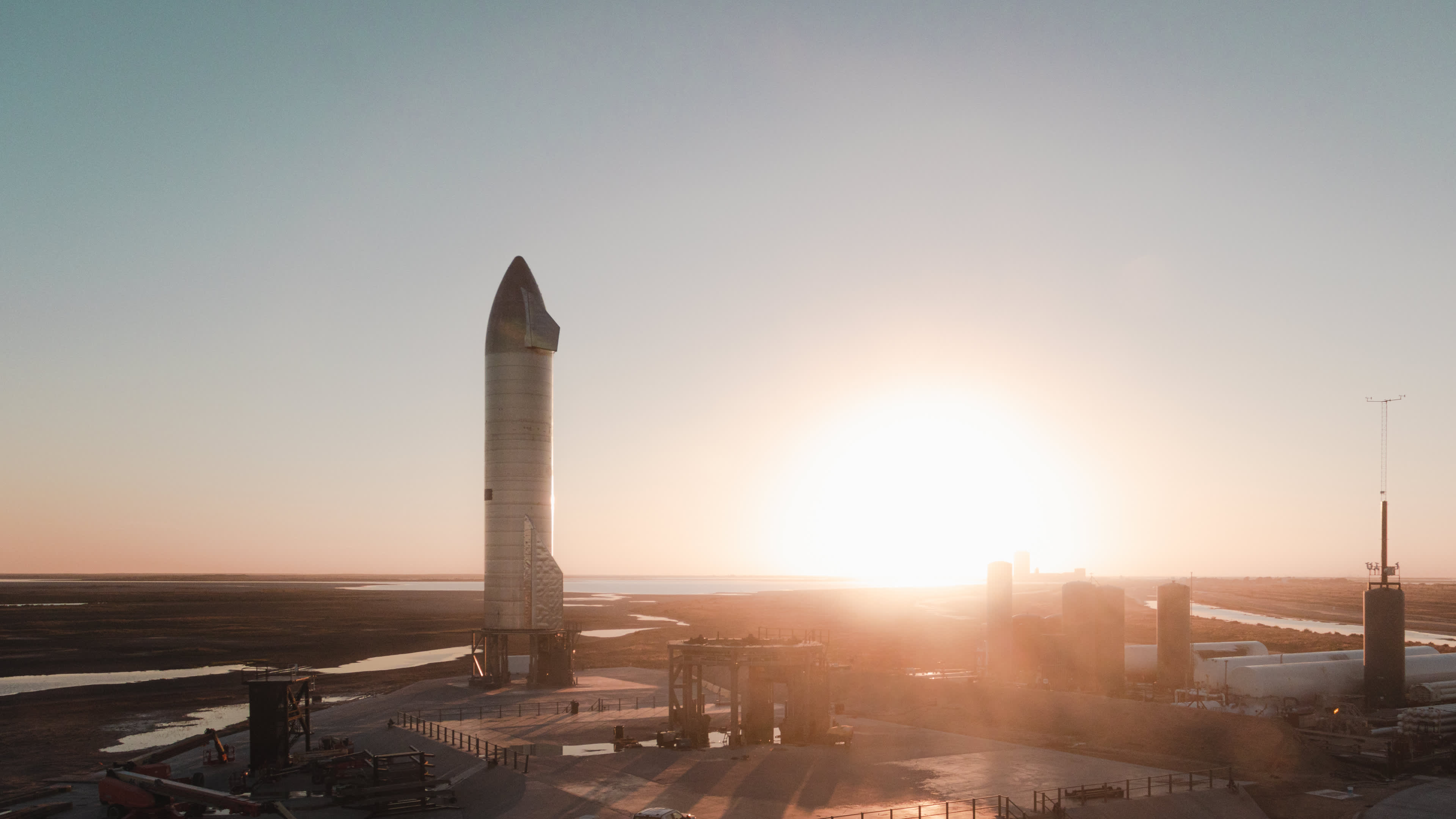Why Ark’s Cathie Wood is so bullish on space: Costs are coming down dramatically

Starship prototype rocket SN9 stands on the company’s launchpad in Boca Chica, Texas.
SpaceX
The space industry is undergoing a change paradigm that Ark Invest’s Cathie Wood believes is dramatically opening the sector to investment opportunities.
“The costs associated with launching, with rockets themselves, with antenna – they’re all coming down dramatically, thanks to both the private and the public sector,” Wood said on CNBC’s “ETF Edge” on Wednesday.
Wood believes in the growth of the private side of the industry – naming the billionaires Elon Musk, Jeff Bezos and Richard Branson, who have their respective space companies SpaceX, Blue Origin, Virgin Galactic and Virgin Orbit – and added that she thinks that “has really helped NASA out” in terms of bringing down costs and adding capabilities.
“On the technology side we see SpaceX and Blue Origin pushing the envelope, so costs are coming down and the technology is finally ready,” Wood added.
Cathy Wood
Crystal Mercedes | CNBC
Ark Invest last month revealed that it is preparing to launch a space exploration ETF, under the ticker ARKX. Word of the new space ETF had a swift impact on the limited number of public companies in the sector, with shares of pure-play space companies rallying the day after an Ark securities filing about the ETF was made public — as well as the stocks of two SPACs, or special purpose acquisition vehicles, which are looking to take space companies public.
Wood declined to comment on the coming ARKX fund, noting that she couldn’t yet say anything about her firm’s plans.
“We’re in the quiet period when it comes to the fund itself. You have to wait until the SEC deems it effective,” Wood said.
Reusing rockets is the ‘only way’ to get to Mars
An artist rendering of SpaceX’s Starship rockets on the surface of Mars.
SpaceX
Wood especially highlighted the work that Musk’s SpaceX has done to develop reusable rockets, with the company now landing and re-launching rocket boosters with consistency. SpaceX is working on developing a next-generation rocket called Starship, to fulfill Musk’s vision of building a rocket that is capable of regular flights – similar to an airplane.
“Many people were saying: ‘Why is he doing that?'” Wood said. “Now we know the only way [Musk] is going to be able to get to Mars, or whoever the first people are. We are going to need reusable rockets.”
SpaceX has successfully launched multiple Starship prototypes, landing them safely after short flights to about 500 feet altitude. But its two most recent high-altitude flights, despite passing multiple development milestones, exploded on impact during attempted landings. Despite the explosive endings to the last two flights, SpaceX has viewed the launches as steps forward in the rocket’s development.
Musk three years ago estimated that the Starship project will cost SpaceX about $5 billion to develop. The company last week closed its latest round of fundraising, CNBC reported on Tuesday, bringing in $850 million in new capital at a valuation of about $74 billion.




